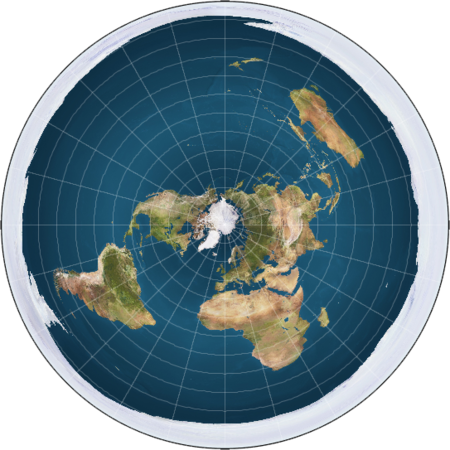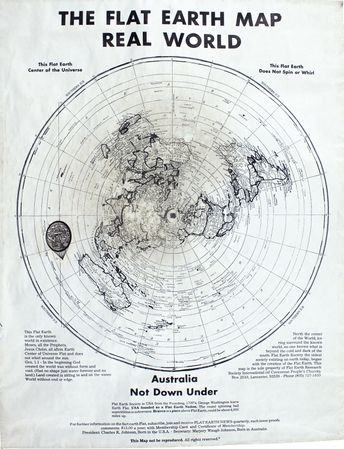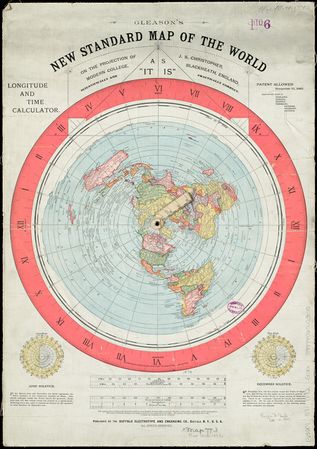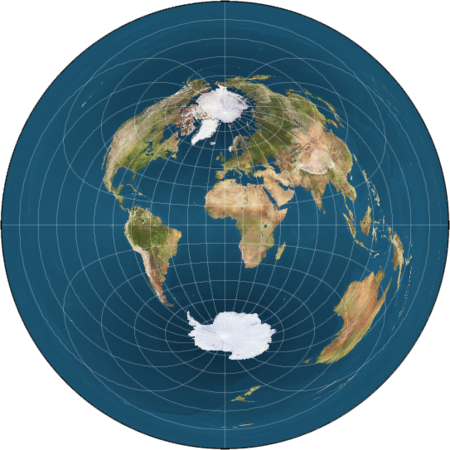Difference between revisions of "Flat Earth Maps"
PeteSvarrior (talk | contribs) |
PeteSvarrior (talk | contribs) |
||
| Line 12: | Line 12: | ||
File:Map.png|The standard monopole Flat Earth map commonly used by the modern [[Flat Earth Society]]|alt=Monopole Flat Earth Map | File:Map.png|The standard monopole Flat Earth map commonly used by the modern [[Flat Earth Society]]|alt=Monopole Flat Earth Map | ||
File:Charles K. Johnson Map.jpg|A [[Charles K. Johnson]]-era map produced by the Flat Earth Society|alt=Charles K. Johnson Map | File:Charles K. Johnson Map.jpg|A [[Charles K. Johnson]]-era map produced by the Flat Earth Society|alt=Charles K. Johnson Map | ||
| + | File:Gleason's Map.jpg|Alexander Gleason's New Standard Map of the World|alt=Gleason's New Standard Map of the World on the projection of J. S. Christopher, Morden College, Blackheath, England; scientifically and practically correct; as it is. | ||
</gallery> | </gallery> | ||
Revision as of 13:58, 13 July 2018
Throughout the history of the Flat Earth Theory, multiple models and maps have been proposed. This page aims to showcase the most prominent examples, and to serve as a reference for those seeking visual guides.
Layout of the Continents
Generally speaking, the main point of contention among Flat Earthers is the several theories concerning the nature and extent of Antarctica, as well as the overall layout of the continents.
Many believe that Antarctica is the Ice Wall encountered by Sir James Clark Ross, whereas some believe that Antarctica is simply a 'rim continent' surrounding the known Earth and that the term Ice Wall is misleading. Others believe that Antarctica is an isolated and distinct continent and that though an Ice Wall exists, it is not Antarctica. The latter model generally assumes that the geography of the Earth is quite different to that outlined in the conventional model.
Below are images of the two Flat Earth geographic models, which convey the different concepts of Antarctica within Flat Earth Theory:




